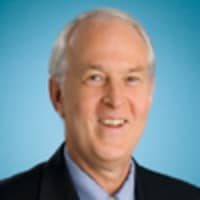Password Reset
Forgot your password? Enter the email address you used to create your account to initiate a password reset.
Forgot your password? Enter the email address you used to create your account to initiate a password reset.

Professor of Ophthalmology Professor, Cell Biology & Physiology Associate Director of Fox Center for Vision Restoration University of Pittsburgh School of Medicine Office Address(es): Eye & Ear Institute 203 Lothrop Street, Room 1011 Pittsburgh, PA 15213 Phone: 412-647-3853
Professor of Ophthalmology
Professor, Cell Biology & Physiology
Associate Director of Fox Center for Vision Restoration
University of Pittsburgh School of Medicine
Office Address(es):
Eye & Ear Institute
203 Lothrop Street, Room 1011
Pittsburgh, PA 15213
Phone: 412-647-3853
Dr. Funderburgh is a Professor of Ophthalmology at the University of Pittsburgh. He is also the Director of the Gene Expression Core Modul, and a Member of the Graduate Faculty in Biochemistry and Molecular Genetics. In addition, he holds a secondary appointment as an Professor of Cell Biology and Physiology.
Dr. Funderburgh earned his undergraduate degree in Chemistry at the University of Texas, Austin. He then got his Masters in Biological Chemistry from the University of Minnesota and his PhD in Physiological Chemistry from the University of Wisconsin. He did postdoctoral work at the University of Geneva, Department of Pathology in Switzerland and was a senior fellow in the Department of Ophthalmology, University of Washington. Prior to coming to Pittsburgh he was a Research Professor at Kansas State University.
Dr. Funderburgh's research interests include stem cell biology and tissue engineering focused on the cornea. He is interested in extracellular matrix biochemistry, proteoglycans, wound healing as well. He is a member of the American Society for Biochemistry and Molecular Biology, the Association for Research in Vision and Ophthalmology, and the American Society for Cell Biology. Recently, he received the honor of becoming a Fellow of the Association for Research in Vision in Ophthalmology.